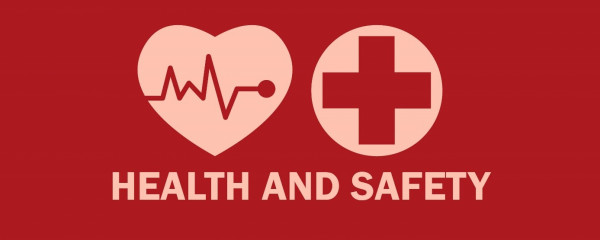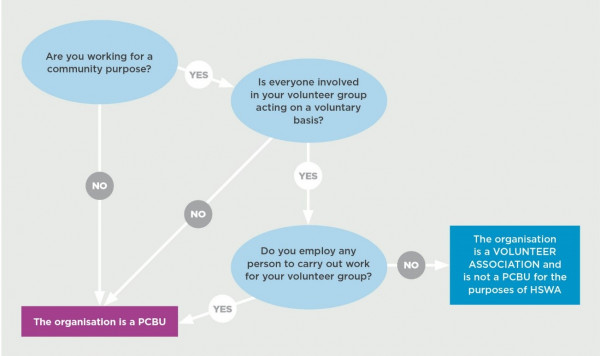Health and safety
blogs
Published 14 July 2021
[3 minutes to read]

Charities are focused on tackling issues that matter, and in doing their mahi (work) they have responsibilities to keep their staff and others safe.
In 2015, the Health and Safety at Work Act 2015 (HSWA) was introduced into New Zealand legislation. The implementation of the HSWA helped to shake things up and sent out the message that “doing” health and safety is no longer just about a few hard hats and keeping the office clean!
What is the HSWA all about?
It’s about making health and safety part of how a business or organisation operates every day to protect its workers and other people, including volunteers, customers and visitors, from health and safety risks. This means that as a person conducting business, you are responsible for the health and safety of the people in your office, and also for the people attending the events you put on, or those who use the services that your charity provides.
Does the HSWA apply to charities?
In short, if your charity has any paid employees (including contractors) then the rules of the HSWA apply.
Under the HSWA, a Person Conducting a Business or an Undertaking (PCBU) has the primary duty of care to ensure the health and safety of their workers and others, and this extends to some charities.
Examples of a business:
Retailer
Manufacturing business
Building contractor
Fast food franchisor.
Examples of an undertaking:
Government agency
Local council
School or early childhood centre
Charity (with exceptions).
Are you a volunteer association?
The HSWA does not apply to a charity when it’s purely a volunteer organisation where volunteers work together for community purposes and do not have any employees. In these cases, the charity is instead known as a volunteer association. This could be a group of volunteers coming together to complete a community project (e.g. a beach clean or a community tree planting event).

Volunteer associations do not fall under the HSWA, however these groups may still have ethical, legal and social responsibilities for each other’s safety and the safety of the public.
If your charity is a PCBU, does it have volunteer workers?
As a charity, it’s not always easy to know when the HSWA should apply to your volunteers. This is because some volunteers are classified as volunteer workers, which means they have the same health and safety duties and rights as paid workers.
Put simply, volunteers are considered volunteer workers when:
they are working for a business/organisation who knows that they are doing work for them
they are working on an on-going and regular basis
the work is a core part of the business, and is not:
participating in fundraising
assisting with sports or recreation for an educational institute or club
assisting with activities for an educational institution outside its premises
providing care for another person in the volunteer’s home (e.g. foster care).
If your volunteers don’t meet these criteria, then they don’t have the same health and safety duties and rights as paid workers. However, they still need to:
take reasonable care of their own safety and take reasonable care not to do anything which could harm another person
follow all reasonable safety instructions given by the PCBU, so that they can comply with their obligations under the HSWA.
What are the primary health and safety duties of a PCBU to its workers and others?
There are a few things that a PCBU must, as reasonably practicable, do:
provide a work environment free from risks to health and safety, including risks of physical and psychological health
provide safe equipment, structures and systems of work
ensure safe use, handling, and storage of substances and structures
offer adequate and accessible welfare facilities such as toilets, drinking water, washing and eating facilities
provide information, training, instructions, or supervision to do the work safety
monitor worker health (where relevant) and the exposures at the workplace, to assess the effectiveness of controls.
Where can I learn more?
To learn more go to the WorkSafe website![]() . It has a variety of useful checklists, templates and reports to work through best practice options for your charity.
. It has a variety of useful checklists, templates and reports to work through best practice options for your charity.
There’s also more information available about how the HSWA applies to volunteers![]() , and a quick reference guide
, and a quick reference guide![]() for groups who want to understand the HSWA in more detail.
for groups who want to understand the HSWA in more detail.
Consider taking a minute today to stop and think about the organisations you are part of and their health and safety procedures, to do your bit to help keep everyone safe.
